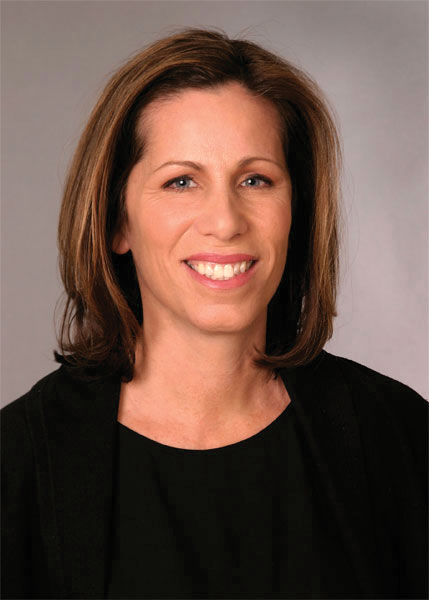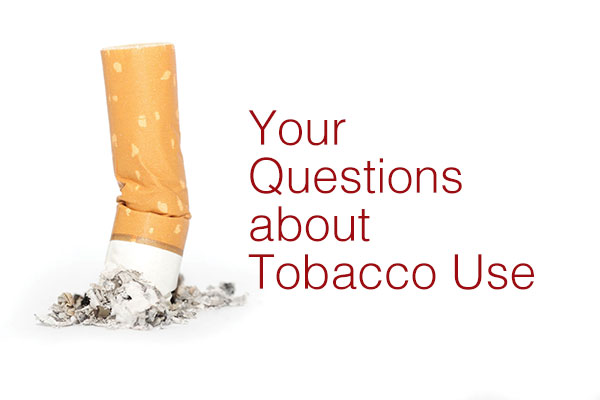Why Is Quitting Smoking Important?
And Other Questions Cancer Survivors Ask about Tobacco Use
by Hermine Poghosyan, PhD, MPH, and Mary E. Cooley, PhD, RN, FAAN
Why do cancer survivors keep smoking?
Receiving a diagnosis of cancer is often an emotionally shocking experience. A cancer diagnosis is also a life-changing event for not only the person diagnosed with cancer but also for their family members and friends. Often, cancer survivors continue to smoke after their diagnosis to try to cope with the stress and difficult emotions that can arise while adjusting to a cancer diagnosis and the impact it may have on their lives.
Is smoking a bad habit?
Cigarette smoking is more than just a bad habit. Tobacco contains nicotine, which is addictive. Moreover, cigarettes contain approximately 600 ingredients. When burned, cigarettes release more than 7,000 chemicals – more than 65 of which are carcinogenic. Every time a person smokes, they inhale these substances into their body. The only way to avoid the chemicals from smoking is to quit smoking. Quitting smoking is not easy, but it is possible. Cancer survivors successfully quit smoking every day.
Why is quitting smoking important?
Quitting smoking helps cancer survivors achieve the best outcomes from cancer treatment. Cancer treatments work better if smokers quit smoking. Cancer survivors who quit smoking also have a better quality of life, experience greater overall well-being, and live longer than people with cancer who continue to smoke. The sooner cancer survivors quit smoking, the faster they will reduce their risk of cancer recurrence and improve their overall health.
What treatments work best to help people quit smoking?
Studies suggest that the best way to quit tobacco use is to receive smoking-cessation counseling, use medications that can help you quit smoking, have regular follow-up with your healthcare provider, and restart treatment as needed. Counseling, or behavioral therapy, means working with a trained tobacco treatment counselor to come up with a plan to quit smoking. For a greater chance of success, you should do tobacco-cessation counseling plus nicotine replacement therapy or varenicline (Chantix) for at least 12 weeks. Nicotine replacement therapy is the most commonly used quit-smoking medication. It gives you nicotine in the form of gum, patches, sprays, inhalers, or lozenges. Nicotine replacement therapy usually provides less nicotine than cigarettes and does not expose you to the other harmful chemicals found in cigarettes. It works by helping reduce the urge to smoke. Using a nicotine-replacement patch along with either the gum or lozenge is generally the most effective strategy. While the patches do last all day, you may still get the urge to smoke while wearing the patch. When this happens, lozenges or gum can be used in the moment to help reduce the craving for tobacco.
You’re Not Alone
Getting the Help You Need to Quit Smoking
Stop-smoking medications can double or triple your success with quitting. However, tobacco-cessation counseling is the key to making a plan to quit and staying smoke-free. In the U.S., there are trained people who can provide you with tobacco counseling both in-person and via phone.
Quitlines are available in every state at no cost to U.S. residents. To connect directly to your state’s quitline, call 1-800-QUIT-NOW (1-800-784-8669). Spanish speakers can call 1-855-335-3569.
Additional Quitlines
American Lung Association
Lung Cancer Helpline
1-800-LUNGUSA
Lung.org/stop-smoking
Asian Smokers Quitline
Mandarin/Cantonese:
1-800-838-8917
Korean: 1-800-556-5564
Vietnamese: 1-800-778-8440
AsianSmokersQuitline.org
National Cancer Institute Quitline
1-877-44U-QUIT
SmokeFree.gov
How do I get started?
The first step to quitting smoking is to speak with your doctor, your nurse, or a quitline coach. During this meeting, your care provider or coach will talk with you about your smoking habit and whether you would like to try medication to help you quit. They will also help you make a tobacco cessation plan. This plan will include detailed information about which treatment is best for you and how to use it. You will also set a quit-smoking date, which will be included in your plan.


Dr. Hermine Poghosyan (left) is an assistant professor in the School of Nursing in the Bouve College of Health Sciences at Northeastern University in Boston, MA.
Dr. Mary Cooley (right) is a nurse scientist at Dana-Farber Cancer Institute’s Phyllis F. Cantor Center in Boston, MA. She is also a tobacco treatment specialist and wellness coach.
This article was published in Coping® with Cancer magazine, November/December 2019.


